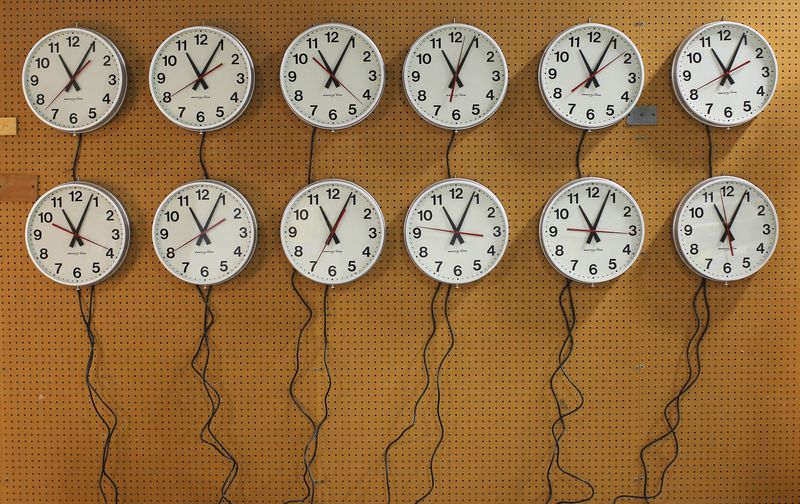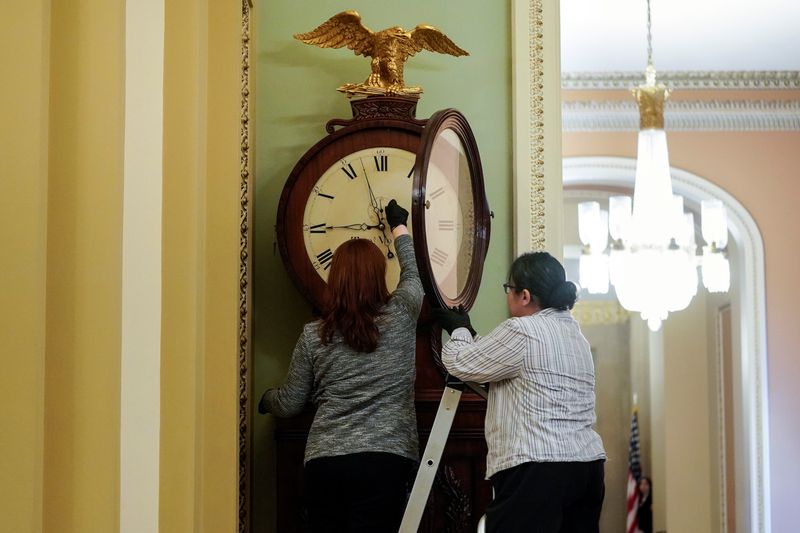WASHINGTON (Reuters) - Legislation has stalled in the U.S. Congress to make daylight saving time permanent after the Senate in March unanimously passed by voice vote a bill that would have ended the observation of standard time starting in 2023 and the practice of changing clocks twice annually.
Clocks in the United States will return to standard time at 2 a.m. EDT on Sunday with no consensus on the matter.
"There are a broad variety of opinions about whether to keep the status quo, to move to a permanent time, and if so, what time that should be," said U.S. House of Representatives Energy and Commerce Committee chair Frank Pallone. "These opinions don’t break down by party, but instead by region. We don’t want to make a hasty change and then have it reversed several years later after public opinion turns against it - which is exactly what happened in the early 1970s."
The following are some of the arguments for and against a change:
PRO: Senator Ed Markey, a Massachusetts Democrat: "As the sun sets on our sunshine and we enter a long, dark winter, Congress has a chance to do something almost unheard of in the wake of a midterm election: pass bipartisan legislation. Now that the Senate has voted unanimously to pass the Sunshine Protection Act, I’m sending rays of support to the House to get this done so Americans don’t have to suffer in darkness."
Midterms elections on Tuesday will determine which party controls Congress.
ANTI: National Association of Convenience Stores: "We should not have kids going to school in the dark. It is the balancing between those various interests that led us to the longstanding policy of switching our clocks in the spring and fall to take the most advantage we can of the daylight we have at different times of year ... The current system of daylight saving is good for business, energy efficiency, and the prevention of vehicle accidents."
PRO: Senator Marco Rubio, a Florida Republican: "So we're doing this back-and-forth clock changing for about 16 weeks of Standard Time a year. I think the majority of the American people's preference is just to stop the back and forth changing. There's some strong science behind it that is now showing and making people aware of the harm that clock switching has. We see an increase in heart attacks and car accidents and pedestrian accidents in the week (s) that follow the changes."
ANTI: Orthodox Jewish group Agudath Israel of America says it has concerns about safety impacts on children walking to school in the dark and the impact on morning prayers.
"Under Jewish law, morning prayers, and the rituals associated with them, are regulated in time-specific ways and must be performed no earlier those certain specified times. Synagogue schedules accommodate those times. With a change in DST, and the later sunrise, the times for prayers and their accompanying rituals will be disrupted –which, in turn, will put into jeopardy their proper fulfillment, discourage synagogue attendance, and result in late arrival for work."
PRO: Senator James Lankford, an Oklahoma Republican: "I don’t know a parent of a young child that would oppose getting rid of springing forward or falling back. Congress created Daylight Saving decades ago as a wartime effort, now it is well past time to lock the clock and end this experiment."

ANTI: Beth Malow, professor and pediatrics director at the Vanderbilt Sleep Division at Vanderbilt University Medical Center:
"DST is like living in the wrong time zone for almost eight months out of the year ... Standard Time is the healthy choice because it maximizes light in the winter mornings, when we need it to wake up and become alert, and minimizes light in the summer evenings, when it can work against our sleep. Permanent, year-round Standard Time is the best match for our biological sleep-wake cycle."
